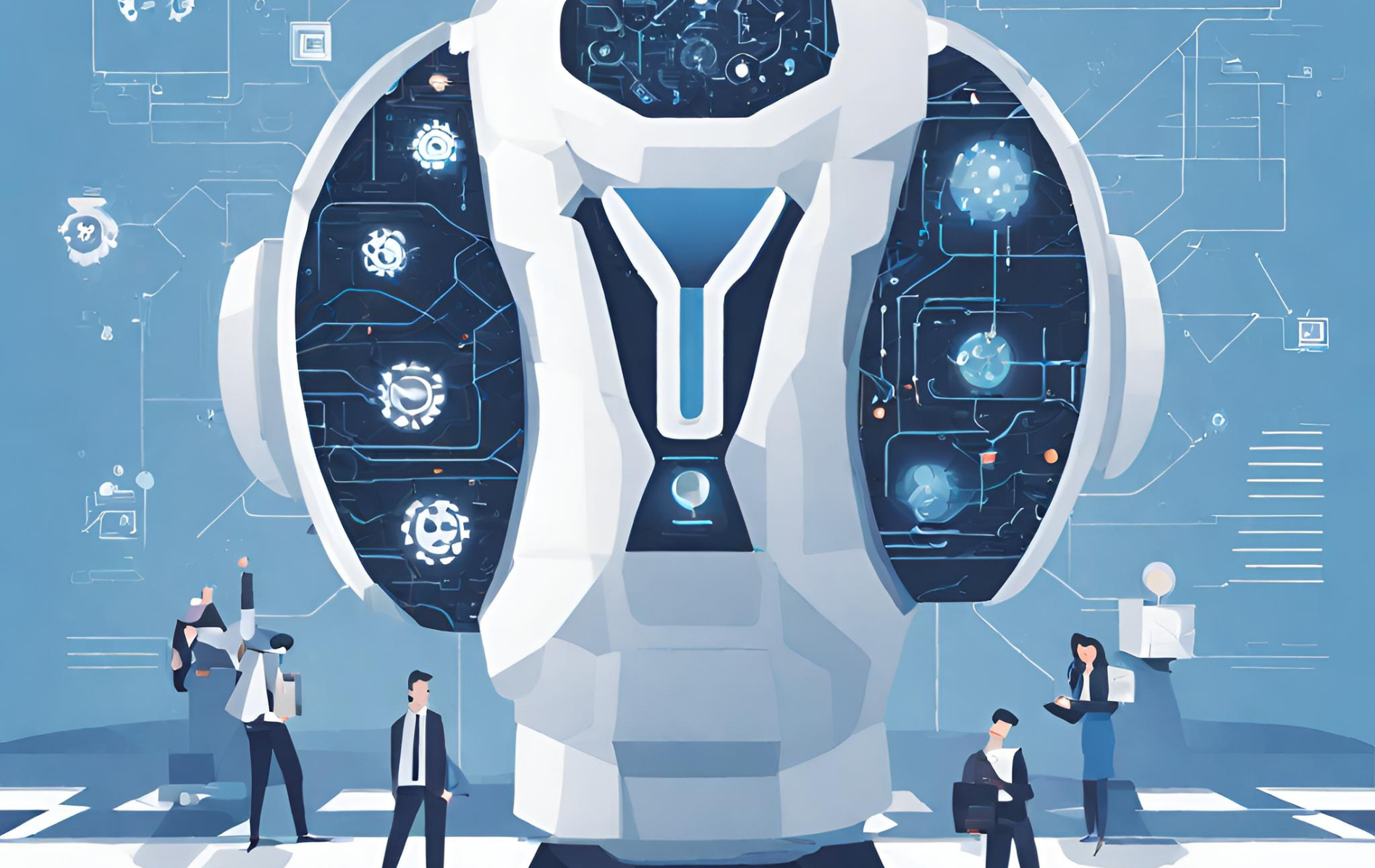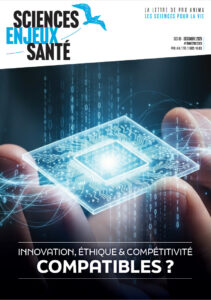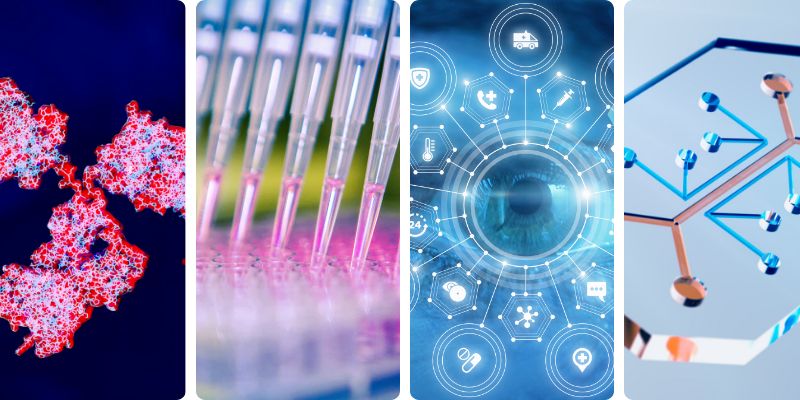
News on non-animal methods
APRIL 01-05, 2024
NEWS, REPORTS & POSITION STATEMENTS
1. EU Commission takes action to boost biotechnology and AI
On March 20, the Commission proposed a series of targeted actions to boost biotechnology and biomanufacturing in the EU, and new living guidelines on the responsible use of Generative AI in research
The Communication on Building the future with nature identifies the challenges and barriers and proposes to tackle them, in line with the Communication on the long-term competitiveness of the EU. The advances in life sciences, supported by digitalisation and artificial intelligence (AI), and the potential of solutions based on biology to solve societal issues, make biotechnology and biomanufacturing one of the most promising technological areas of this century that can contribute to a more competitive and resilient EU, that provides better healthcare to its citizens, and succeeds in its green and digital transitions.
The Commission, together with the European Research Area countries and stakeholders, has put forward a set of guidelines to support the European research community in their responsible use of generative artificial intelligence (AI). With the rapid spread of the use of this technology in all domains including in science, these guidelines are a game-changer providing clarity and essential support to confidently navigate the world of Generative AI..
2. New Methods in Human Safety Assessment: Right Here, Right Now
The potential for NAMs to provide human-relevant risk assessment is now recognised by multiple stakeholder groups including governments and regulatory authorities, and while NAMs are already used for internal decision-making their use in regulatory safety assessment is limited.
However, funding for developing NAMs, such as Complement-ARIE, a Common Fund set up this year by the US National Institutes of Health, includes dollars for validation networks that will go a long way towards putting the ICCVAM framework into practice and developing the necessary confidence for human safety assessment.
3. Artificial intelligence as a hope for creating new medicines
AI has great potential in many areas of research, such as discovering new therapeutic targets, identifying failing candidates more quickly, and optimizing the performance of new molecules. Major partnerships between pharmaceutical groups and start-ups are multiplying, but the contributions of AI remain subject to numerous challenges. How can we avoid the disappointments of AI in drug discovery?
Read more (Le Monde, FR)
4. Challenging the status quo: a framework for human-relevant cardiovascular safety screening
Traditional approaches to preclinical drug safety assessment are highly dependent on animal studies and have the potential to lead to the termination of useful drugs due to liabilities in animals that are not applicable in patients. This phenomenon is particularly problematic in the area of cardiovascular safety assessment where preclinical attrition is high.
A multi-tiered assessment that leverages our understanding of human cardiovascular biology, applies human cell-based in vitro characterizations of cardiovascular responses to insult, and incorporates computational models of pharmacokinetic relationships would enable earlier and more translational identification of human-relevant liabilities. While this will take time to develop, the ultimate goal would be to implement such assays both in the lead selection phase as well as through regulatory phases.
5. Bridging Academia and Industry: The Evolution of 3D Models in Drug Development
The industry’s search for alternatives to traditional preclinical drug testing methods has led to a growing interest in the potential of three-dimensional (3D) in vitro models.
To delve deeper into this subject, Technology Networks spoke with Madhu Lal-Nag, chief scientific officer at InSphero, a 3D in vitro model company with a mission to “modernize drug discovery in ways that inspire researchers everywhere to reach their full potential and fuel a new era of breakthrough therapies.” “Nowadays the regulatory authorities want to take part in these conversations. Historically there has always been a “wall” between the regulators and those they regulate, but there’s a lot more interaction now, and that’s very heartening to see.”
6. The benefits of validation of methods for toxicity testing outweigh its costs
Validation activities for methods intended to be used to assess chemical safety have a cost but also bring substantial benefits when the validated methods are established as OECD Test Guidelines which results in mutual acceptance of data generated by the methods.
The article discusses some of the challenges faced when method validation is underfunded and unattractive for researchers. Proposals are made to improve the current situation, gain efficiency and make validation a shared responsibility.
7. In search of AI algorithms that mimic the brain
AI is advancing so rapidly it can be easy to forget how mysterious deep neural networks, the building blocks of modern AI, still are.
International Business Machines (IBM) researcher Dmitry Krotov is a theorist on the hunt for artificial neural networks that can crunch data as efficiently as the brain: “Energy-based models are appealing because you can design their computation by shaping the energy landscape instead of forcing the neural network to produce the desired answer. They are still a fringe idea but have intriguing potential.”
INTERVIEWS, NOMINATIONS & AWARDS
8. Digital Health Trophy 2024 awarded by France BioTech goes to Orakl Oncology
The HealthTech Trophées 2024 ceremony award took place this March 25. It was a great opportunity to shine the spotlight on French HealthTech companies that have recently made their mark on the sector through their creativity, imagination, perseverance and talent. The aim is to promote the winning and finalist companies, showcase their technology in the service of patients, and highlight the dynamism of their teams.
Orakl Oncology mission is leveraging health data and AI, empowering them through a positive feedback loop with cell biology, to expedite the development of better drugs for cancer patients.
Watch the pitch (FR)
TOOLS, PLATFORMS, CALLS
9. Innovative animal replacement pilot and transition grants
Animal Free Research UK is awarding innovative pilot and transition grants to accelerate the development and wider adoption of animal-free technologies to improve medical research for the good of patients, science, and animals.
Pilot grants enable researchers to explore new ideas in replacement research that merit further development, and to enable the collection of sufficient data to assist in securing larger funding from other funding organisations.
Transition grants support scientists to transition from animal research to animal-free research. They particularly welcome applications from researchers who are seeking to replace animal-based research methods with relevant animal-free scientific approaches.
SCIENTIFIC DISCOVERIES & PROTOCOLS
10. ARTEMIS : a machine learning model that is able to predict early-stage lung or liver cancer
Repetitive sequences make up much of the human genome and have been implicated in cancer development, evaluating changes in repeat elements from liquid biopsies.
Annapragada et al. have taken advantage of the new telomere-to-telomere reference genome to develop ARTEMIS (Analysis of RepeaT EleMents in dISease) to call these repeat elements from whole-genome sequencing and created a machine learning model that is able to predict disease in patients with early-stage lung or liver cancer. This promising new technique offers a new avenue for both cancer detection and monitoring that warrants further study.
UPCOMING WEBINARS, WORKSHOPS, SYMPOSIA
Book Talk: “The Rise and Fall of Animal Experimentation” with Richard J. Miller (March 27, 2024)
SAVE THE DATE FOR WC13!
Please save the date for the 13th World Congress on Alternatives and Animal Use in the Life Sciences, to be held in Rio de Janeiro, from August 31st to September 4th, 2025.


